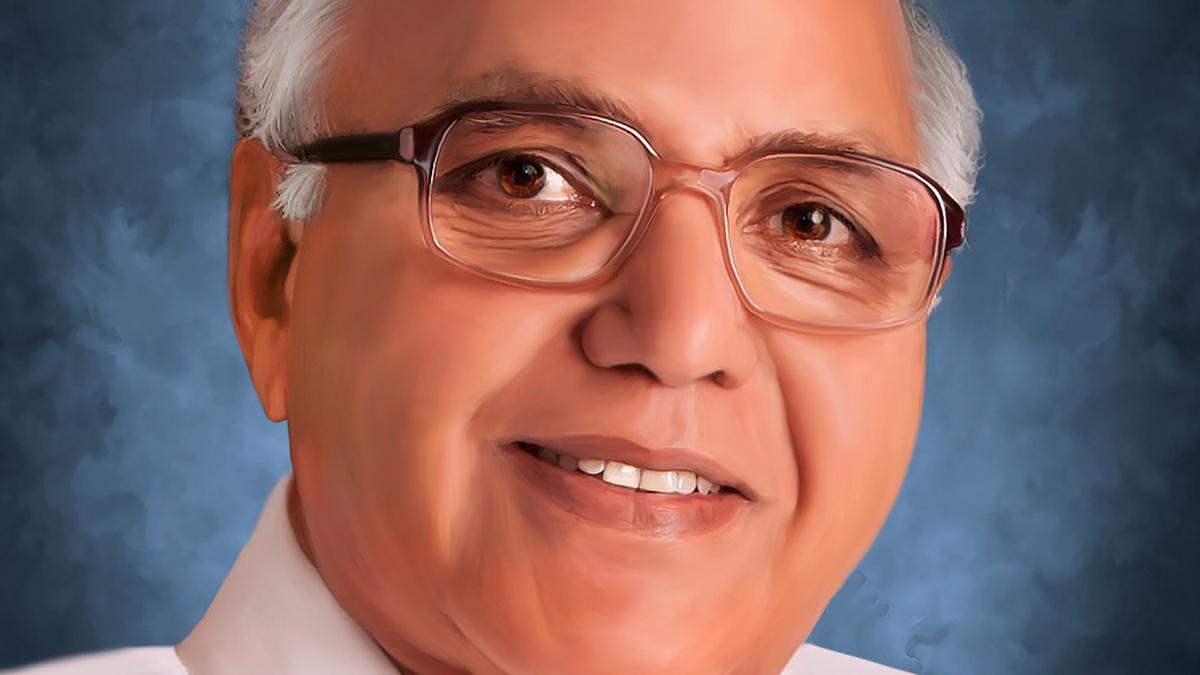
Ramoji Rao’s entrepreneurial journey began in Visakhapatnam
The Hindu
Ramoji Rao’s entrepreneurial journey began in Visakhapatnam. After first launching an advertising agency in the City of Destiny, he forayed into the print media by kick-starting Eenadu daily from a defunct film studio, and then went on to become a hotelier by establishing the Dolphin Hotel.
Telugus residing across the globe and in the two States of Andhra Pradesh and Telangana lost their legendary personality and Ramoji Group founder Cherukuri Ramoji Rao on June 8 (Saturday).
A media baron, an entrepreneur and a philanthropist, Ramoji Rao, who had not been doing well in the recent past, died after a brief illness while undergoing treatment at a private hospital in Hyderabad.
But many may not know that Ramoji Rao’s entrepreneurial journey had started in Visakhapatnam. It was in the City of Destiny that he had launched Eenadu, the Telugu daily, on August 10, 1974.
Ramoji Rao had taken a defunct film studio at Seethammadhara for rent to launch the first edition of Eenadu, and there was no looking back for him from then onwards. Today, the Telugu daily has several editions and branches across multiple centres and States.
The Ramoji Group has under its ambit the Eenadu group of publications, Ramoji Film City, a film studio in Hyderabad that is considered the largest in the world, Margadarsi Chit Fund, Dolphin Group of Hotels, and many other companies.
A few senior staff members fondly recall how Ramoji Rao used to crisscross the city on his Lambretta scooter to promote and distribute the newspaper. He had launched Eenadu with a print order of about 4,000 copies and sell about 3,000 of them. But his experience in the advertising industry had enabled him to keep the newspaper afloat, recollects a senior executive from the advertising industry.
Ramoji Rao began his career by floating Kiran Ads, an advertising agency, in Visakhapatnam. After the success of Eenadu, he had forayed into hotel industry and started his first establishment, Dolphin Hotel, in Visakhapatnam in the early 1980s.

“Writing, in general, is a very solitary process,” says Yauvanika Chopra, Associate Director at The New India Foundation (NIF), which, earlier this year, announced the 12th edition of its NIF Book Fellowships for research and scholarship about Indian history after Independence. While authors, in general, are built for it, it can still get very lonely, says Chopra, pointing out that the fellowship’s community support is as valuable as the monetary benefits it offers. “There is a solid community of NIF fellows, trustees, language experts, jury members, all of whom are incredibly competent,” she says. “They really help make authors feel supported from manuscript to publication, so you never feel like you’re struggling through isolation.”

Several principals of government and private schools in Delhi on Tuesday said the Directorate of Education (DoE) circular from a day earlier, directing schools to conduct classes in ‘hybrid’ mode, had caused confusion regarding day-to-day operations as they did not know how many students would return to school from Wednesday and how would teachers instruct in two modes — online and in person — at once. The DoE circular on Monday had also stated that the option to “exercise online mode of education, wherever available, shall vest with the students and their guardians”. Several schoolteachers also expressed confusion regarding the DoE order. A government schoolteacher said he was unsure of how to cope with the resumption of physical classes, given that the order directing government offices to ensure that 50% of the employees work from home is still in place. On Monday, the Commission for Air Quality Management in the National Capital Region and Adjoining Areas (CAQM) had, on the orders of the Supreme Court, directed schools in Delhi-NCR to shift classes to the hybrid mode, following which the DoE had issued the circular. The court had urged the Centre’s pollution watchdog to consider restarting physical classes due to many students missing out on the mid-day meals and lacking the necessary means to attend classes online. The CAQM had, on November 20, asked schools in Delhi-NCR to shift to the online mode of teaching.









